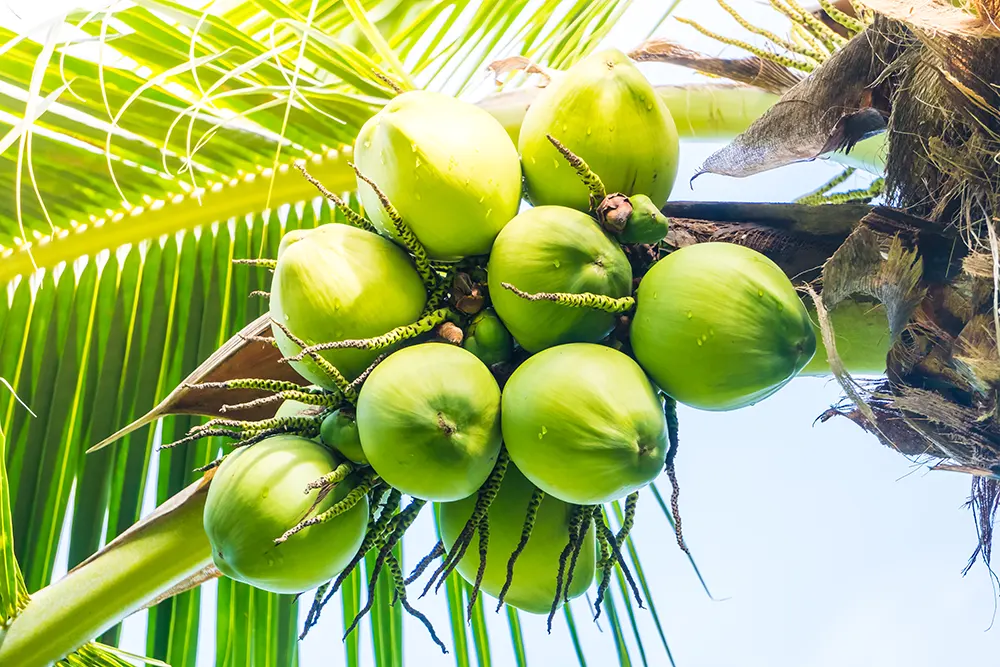Sri Lanka, known for its stunning landscapes and rich cultural heritage, is also a prominent player in the global coconut industry. The island nation's tropical climate and fertile soil make it an ideal location for coconut cultivation, contributing significantly to the economy and the livelihoods of many Sri Lankans. In this blog, we will explore the importance of coconut production in Sri Lanka, its economic impact, and the myriad ways in which coconuts benefit the local population.
A Brief Overview of Coconut Production in Sri Lanka
Coconut cultivation is deeply ingrained in Sri Lanka's agricultural landscape, with the country being one of the top coconut producers in the world. The Coconut Triangle, encompassing the districts of Kurunegala, Puttalam, and Gampaha, is the heart of coconut farming in Sri Lanka. This region is responsible for the majority of the country's coconut output.
Sri Lanka produces a variety of coconuts, including the traditional tall coconut varieties and the more recently introduced dwarf varieties. The country's annual coconut production is estimated to be around 2.5 billion nuts, with a significant portion being exported to international markets.
Economic Significance
Export Revenue: Coconuts and coconut-based products are a major source of foreign exchange for Sri Lanka. The country exports a wide range of coconut products, including desiccated coconut, coconut oil, coconut milk, and coir products. These exports contribute significantly to the national economy, providing valuable revenue and helping to balance trade deficits.
Employment Opportunities: The coconut industry is a major employer in Sri Lanka, providing jobs to millions of people, from farmers and plantation workers to those involved in processing and export activities. This sector is vital for rural employment and plays a key role in reducing poverty in agricultural communities.
Value-Added Products: Sri Lanka has a well-developed value-added coconut product industry. By processing raw coconuts into a variety of products, the country can increase its export earnings and provide higher-income opportunities for its workforce. These value-added products include coconut water, virgin coconut oil, coconut flour, and coconut-based cosmetics.
Nutritional and Health Benefits
Coconuts are not only economically important but also offer numerous health benefits:
Nutrient-Rich: Coconuts are packed with essential nutrients, including vitamins C, E, B1, B3, B5, and B6, as well as minerals such as iron, selenium, sodium, calcium, magnesium, and phosphorus. They provide a nutritious addition to the diet.
Healthy Fats: Coconut oil is rich in medium-chain triglycerides (MCTs), which are known to boost metabolism and support weight loss. MCTs are also believed to have antimicrobial and antifungal properties.
Hydration: Coconut water is a natural isotonic beverage, making it an excellent hydrating drink. It is low in calories and contains electrolytes such as potassium, making it a popular choice for rehydration after physical activity.
Cultural and Traditional Significance
Coconuts hold a special place in Sri Lankan culture and tradition. They are used in various religious and cultural ceremonies and are considered a symbol of prosperity and purity. The coconut palm, often referred to as the "Tree of Life," is revered for its ability to provide food, shelter, and a multitude of other uses.
Environmental Benefits
Coconut trees contribute to environmental sustainability in several ways:
Soil Conservation: The extensive root system of coconut trees helps prevent soil erosion and improves soil health by enhancing its organic matter content.
Carbon Sequestration: Coconut plantations act as carbon sinks, absorbing carbon dioxide from the atmosphere and helping to mitigate climate change.
Biodiversity: Coconut plantations can support a diverse range of flora and fauna, contributing to the preservation of biodiversity in agricultural landscapes.
Conclusion
Coconut production is a cornerstone of Sri Lanka's economy, culture, and environment. The coconut industry provides vital economic benefits through export revenue and employment, while also offering numerous health benefits to consumers. Moreover, the environmental and cultural significance of coconuts underscores their importance to the nation. As Sri Lanka continues to develop and innovate within the coconut industry, it remains poised to maintain its status as a leading global producer and exporter of this versatile and invaluable crop.
References
- Coconut Development Authority, Sri Lanka
- Food and Agriculture Organization of the United Nations (FAO)
- International Coconut Community (ICC)


